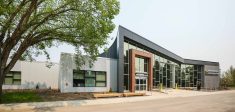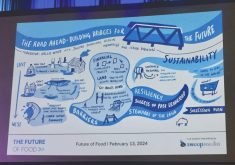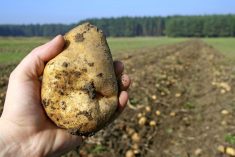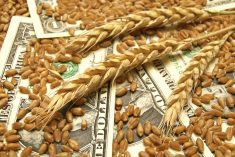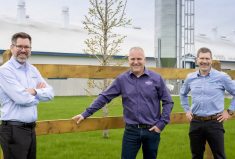Alberta has never seen a farm like this: small but big; pesticide free but also bug free; using just a small fraction of normal water use; and with half the workers bearing titles such as “automation technician” or “data architect.”
Site work is already underway for construction of a 74,000-square-foot indoor vertical farm that GoodLeaf Farms will operate in an industrial park on 108 Avenue SE in Calgary.
“From the outside it looks like a standard warehouse/industrial space,” said Jeff McKinnon, a senior vice-president with parent company TruLeaf Sustainable Agriculture. “On the inside, it’s outfitted with a lot of technology.”
Read Also
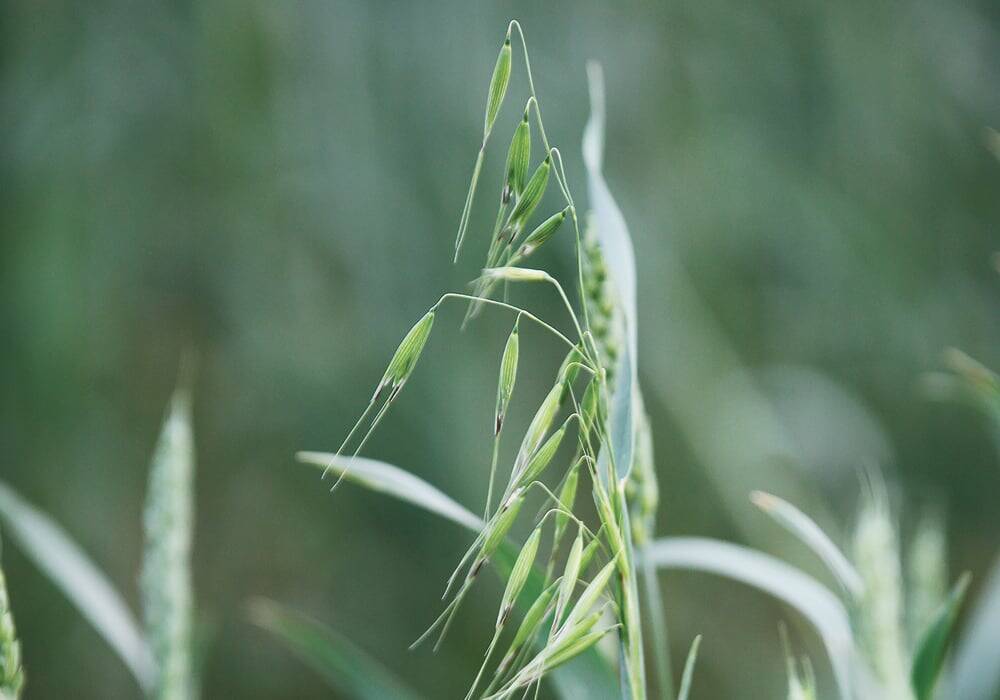
Think beyond the herbicide jug when dealing with wild oats
Wild oats are notoriously hard to manage, but one precision ag specialist offers some tips to growers.
TruLeaf is a 10-year-old Nova Scotia company that is already growing leafy greens under LED lights at a 45,000-square-foot facility in Guelph, Ont. using technology it developed (and sells) called Smart Plant Systems.
Which is why jobs at this farm skew heavily to the tech side.
“Of the 70 that will ultimately be created, it’s a mix,” McKinnon said at a press conference announcing the new operation. “So roughly half would be engineers, plant scientists, biologists, food-safety experts, automation technicians, computer programmers, data architects — and the other half would be everyday labour.”
The company is getting a provincial government grant of $2.73 million to locate in Alberta, but McKinnon said that money would only be “a small component of our capital costs.”
Details of the plant design weren’t released but even if every square foot of the 74,000 square feet is used to grow greens (such as baby arugula and “micro broccoli”) that would still be less than two acres. And the facility will produce more than a million pounds of produce annually — 50 times the per-square-foot output of an outdoor farm, McKinnon said.
The greens are grown hydroponically (using “traditional ebb-and-flood irrigation”) but the only water lost is what’s in the produce when it’s shipped.
“We would use roughly 95 per cent less water than traditional agriculture,” he said.
Produce will be regularly tested to ensure there are no pathogens present, and no herbicides or pesticides are needed because there won’t be weeds or insect pests in the facility, he added.
Although GoodLeaf isn’t a well-known name, it has a major backer in McCain Foods.
The Canadian food giant has invested $65 million into TruLeaf, has two of five board seats and the company is now run by Barry Murchie, a longtime senior executive at Maple Leaf.
“Setting up in Calgary is a huge step forward for GoodLeaf to establish a truly national footprint as Canada’s largest commercial indoor vertical farm,” Murchie said in a news release. “With Canada’s limited growing season, climate-controlled indoor farms offer Canadians access to fresh, locally grown leafy greens year round.”
The criticism of indoor farms is that leafy greens and herbs are about all you can grow without sunshine.
But some are pushing those boundaries. For example, Bayer teamed up with a Singapore sovereign fund last year to create Unfold. The California startup is focused on designing seeds for indoor lettuce, tomatoes, peppers, spinach and cucumbers, using Bayer germplasm.
Meanwhile TruLeaf, which will launch a third ‘farm’ in Quebec next year, has its sights set beyond Canada’s borders, said McKinnon.
“GoodLeaf is working to be a global leader in indoor vertical farming, and our first step to achieving that is ensuring we have a strong footprint in Canada,” he said.




